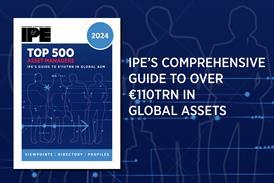IRELAND - The Health Service Executive (HSE) has revealed there was a 45% increase in the deficit of its defined benefit (DB) pension costs totalling €29m by the end of May.
HSE employees can join various DB superannuation schemes, such as those for clinical and non-clinical staff. However, as the organisation is funded on a pay-as-you-go basis by the State, pension entitlements are paid to retired staff from current income and charged to the income and expenditure account in the year they are payable.
The HSE’s annual report revealed it paid €408.8m in pension costs to superannuation schemes in 2008, however the report noted “in accordance with a directive from the Minister for Health and Children, no provision is made in the financial statements in respect of future pension benefits”.
As a result, employee contributions are credited to the income and expenditure account in the year they are received, and “to date, no formal actuarial valuations of the HSE’s pension liabilities have been carried out”.
The May performance update published by the organisation, which employs over 130,000 people, showed a deficit of €83.2m for the year-to-date of which €29m was attributable to the pension deficit.
The HSE had previously noted an increase in the number of retirements in 2009, with pension payments including lump sums increasing by €13.4m at the end of March, so by the end of April it recorded a pension deficit of €19.9m, which it claimed “correlates with the sharp rise in the numbers of staff retiring”.
But it warned this excluded the impact of the government’s Incentivised early retirement scheme announced in the supplementary April budget, and suggested the cost “will continue to grow as the year progresses particularly in light of the possibility of the taxation of lump sums”. (See earlier IPE article: Warnings surface over Irish early retirement plan)
In May, the HSE said the “escalation in people retiring appeared to abate” over the month as the deficit increased 45% from €20m to €29m, although this was still a small improvement over the April figures when the deficit increased 67% from €12m to €20m.
The organisation admitted in its report that “emerging retirements/pension costs will need to be carefully monitored in the coming months”, adding that unless the deficit improves it will be required to “take measures to meet this shortfall which were not foreseen at the start of the year”.
It added: “These measures will not require a service plan amendment at present but this may be necessary at a later date.” The service plan sets out the type and volume of health and personal social services it can provide to Ireland within its budget constraints.
If you have any comments you would like to add to this or any other story, contact Nyree Stewart on + 44 (0)20 7261 4618 or email nyree.stewart@ipe.com












No comments yet